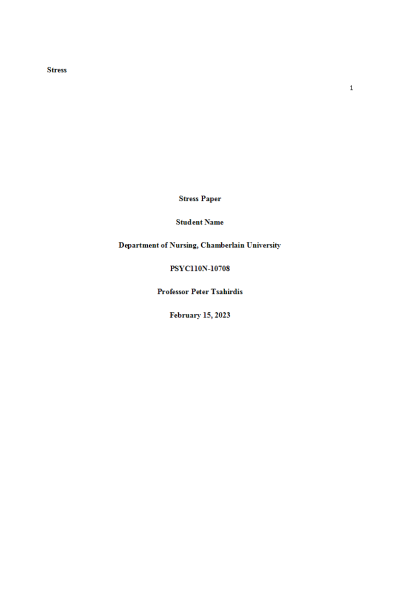PSYC 110N Week 6 Assignment; Managing Your Stress
-
$20.00
| Institution | Chamberlain |
| Contributor | Fuentes Linar |
Content Preview
Stress is defined as a psychological and physiological response to a perceived threat or challenge (McEwen & Stellar, 1993). It is a response that prepares individuals to deal with stressful situations and can be beneficial in certain circumstances. However, when stress becomes chronic and prolonged, it can have a negative impact on an individual's physical, mental, and emotional well-being (Selye, 1936).
Chronic stress can lead to a range of negative physical and mental health outcomes, including fatigue, headaches, muscle tension and pain, sleep disturbances, decreased immunity, and digestive problems (American Psychological Association, 2017). It can also lead to anxiety, depression, and other mood disorders (Kessler, Chiu, Demler, & Walters, 2005). In extreme cases, chronic stress can even increase the risk of developing chronic illnesses such as heart disease, stroke, and cancer (McEwen & Stellar, 1993).
While stress can have negative effects, it is important to recognize that stress can also have positive effects (McEwen & Stellar, 1993). For example, stress can increase motivation and focus, enhance creativity and problem-solving skills, and strengthen resilience (McEwen & Stellar, 1993). When faced with a challenge, stress can also help individuals perform better and more effectively (McEwen & Stellar, 1993)……..Continue
| Instituition / Term | |
| Term | Uploaded 2023 |
| Institution | Chamberlain |
| Contributor | Fuentes Linar |










